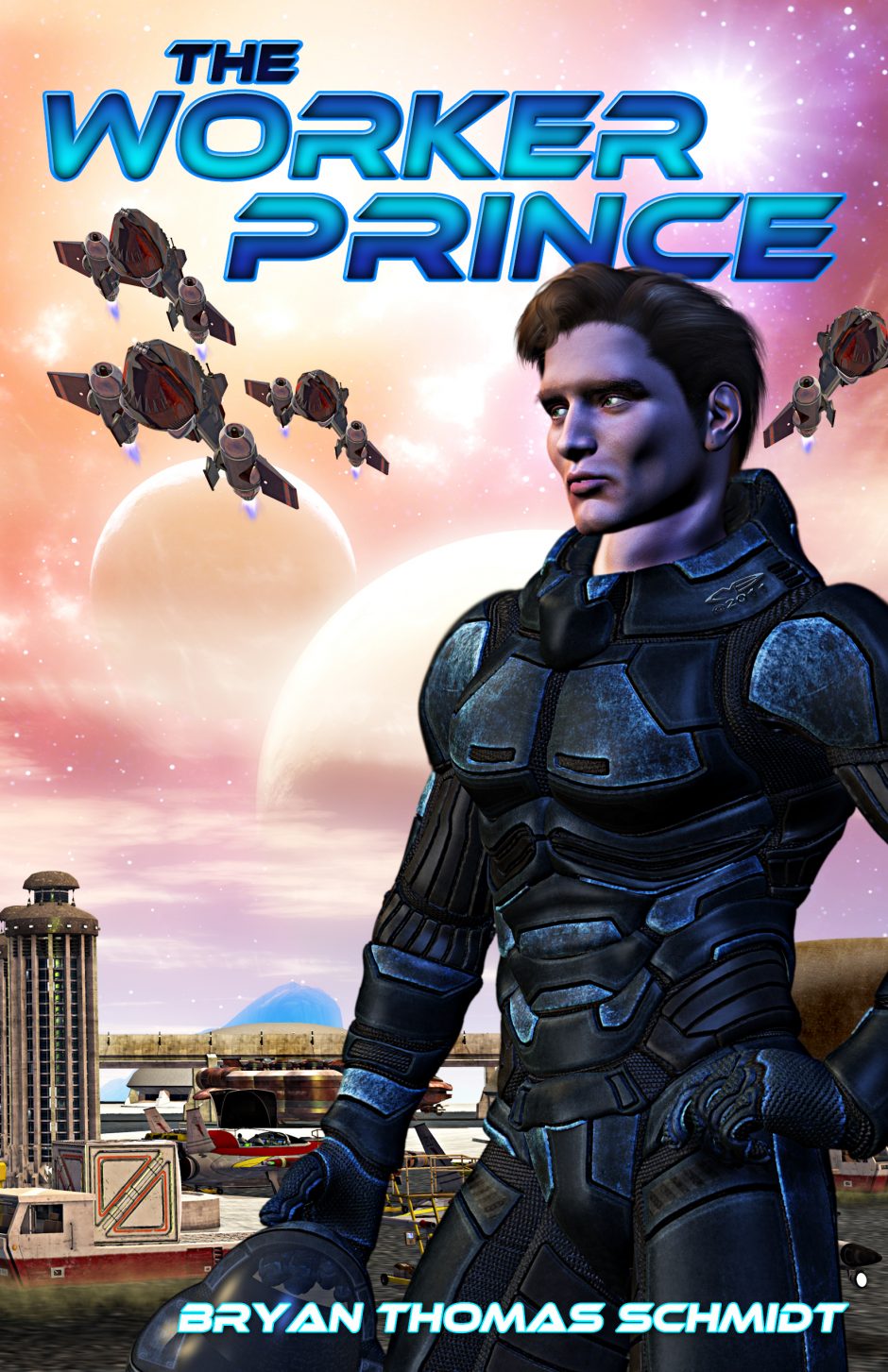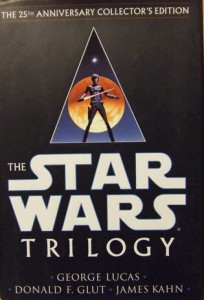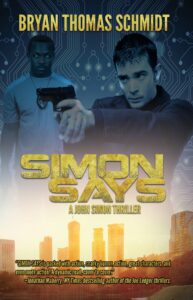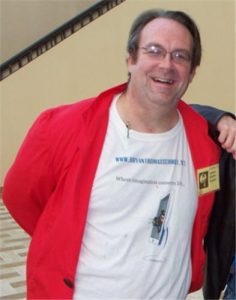 I am a film school grad of California State University, Fullerton. I spent several years working in TV and film and had a script in development at Disney. It never got made. I never got rich and famous. But the lessons I learned from film school and, particularly, the books of Syd Field about story structure have stayed with me. In Screenplay, field presents the standard for screenplay structure: 3 acts, the first and last of 30 pages (a page equalling approximately a minute on screen) and the middle being 60 pages. This is called the Three Act Structure.
I am a film school grad of California State University, Fullerton. I spent several years working in TV and film and had a script in development at Disney. It never got made. I never got rich and famous. But the lessons I learned from film school and, particularly, the books of Syd Field about story structure have stayed with me. In Screenplay, field presents the standard for screenplay structure: 3 acts, the first and last of 30 pages (a page equalling approximately a minute on screen) and the middle being 60 pages. This is called the Three Act Structure.
On a basic level, it works like this:
The First Act sets up the setting, characters, etc. We are introduced to our protagonist, antagonist and their problems, i.e. the issues which will cause them to clash later on. Around page 30, a major plot point occurs, called a turning point, where something happens the compels the protagonist to react and takes the story in a new direction. He or she must respond and struggle to save the day, solve the problem, win over the girl, or otherwise deal with their life being turned upside down in a major way to get back to happy again. This act tends to move fairly tightly and concisely. And a good steady pace is helpful to get people into the story and make them want to stay for the rest.
The Second Act is the middle. The first major plot point has happened and the character must now respond, going on an adventure or quest to solve the problem. The antagonist, meanwhile, is working to get there first or keep the protagonist from succeeding. Act Two is full of complications. The first half propels us toward a middle plot point which in some way turns the story and compels them to action toward the second major plot point at the end of the act, around page 90. Although pace is important here, at times, in Act Two, one can slow down a bit and develop characters, etc., allowing the story to breathe.
The Third Act is the wrap up dealing with the results of major plot point two and all the loose ends from throughout the story. Like Act One, this act moves quickly, and more quickly than any of the others because it needs to feel driven to carry us to the climax.
Those are the basics of Three Act Screenplay structure, but further breaking it down is where it really becomes useful for us as novelists. In screenplays, stories consist of beats.
There are three types of beats:
1. Story Beat (Plotting) — these are action points upon which the story is framed. They build together like a puzzle. These include the major turning points at act breaks and usually the halfway beat for Act Two. But many smaller beats occur as well (we’ll get to that shortly). Major Story Beats typically include:
Opening (Normal World)
Inciting Incident (Act One midpoint)
Act 1 Break (Plot Point 1)
Midpoint (Mid-Point of the Act 2, takes us into the second half of Act 2)
Act 2 Break (Plot Point 2)
Climax (Resolution)
2. Emotional Beat (Character Arc)–We’re all familiar with “character arcs.” These are made up of emotional beats: events wherein the physical action of story creates an emotional reaction within your character. These show us what motivates the next action within the character. By connecting the emotional beats, you see the character arcs.
3. Reversal (Emotional Beat Within a Scene)–Unlike the others, this refers to specific moments within a scene where a character undergoes an emotional reversal. Example: Bob confronts Joe who killed his mother. Bob wants to kill Joe. But then Joe explains Bob’s mom viciously murdered his mom years before. Not only that but Joe is Bob’s half-brother from his father’s affair. Now Bob is reconsidering his initial emotional reaction.
Something major happens every 15 pages. While the major act turning points occur at page 30 and page 90, these in between breaks matter too. They are beats. And some are emotional, some story and some reversals. Reversals are powerful and must be used with care, but you can use more than one to provide some mystery and twists and turns to your story as long as you use them wisely.
How can this help novelists?
By thinking of your story with this framework, you can make sure you keep your plot moving at a steady pace. You can avoid long periods where “nothing happens” and, instead, focus in on beats and plot points which push things forward. It doesn’t matter if you’re a pantser or an outliner, this can work for you. I tend to be a pantser and that’s how I write. I ask myself: what could happen next that would surprise the characters and take things in unexpected directions? Sometimes, I surprise myself. The Returning, my second Davi Rhii novel, is full of moments like that. The Story Beats lead to Emotional Beats as characters affected by the events of the plot react emotionally. Examples: A friend’s life is threatened, the protagonist takes action to protect and/or save the friend. A secret past is revealed and the protagonist struggles to come to terms with it and redefine who he/she is. See how it works?
Novels don’t share the same paging as screenplays, so you have to set aside the specific 15,30,60,90 pages marks in this case. But screenplays consist of sparse description/action and lots of dialogue, so thinking through this structure should still make things come out fairly close to the same as you write. By incorporating these beats and plot points, something many of us do on instinct, you can be more deliberate about arranging your story so it moves at a good, even clip and avoids needless sidetracking or lags. The end result will be a tighter, better paced story which hooks the reader and keeps them interested to the end.
How do you structure your novels? I’d love to hear your thoughts in comments. For what it’s worth…
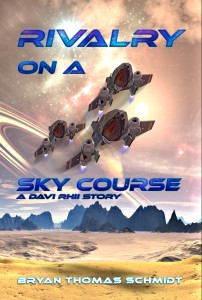 Bryan Thomas Schmidt is the author of the space opera novel The Worker Prince, a Barnes & Noble Book Clubs Year’s Best SF Releases of 2011 Honorable Mention, the collection The North Star Serial, Part 1, and has several short stories forthcoming in anthologies and magazines. His second novel, The Returning, is forthcoming from Diminished Media Group in 2012 along with his book 102 More Hilarious Dinosaur Jokes For Kids from Delabarre Publishing and the anthology Space Battles: Full Throttle Space Tales #6 which he edited for Flying Pen Press, headlined by Mike Resnick. As a freelance editor, he’s edited a novel for author Ellen C. Maze (Rabbit: Legacy), a historical book for Leon C. Metz (The Shooters, John Wesley Hardin, The Border), and is now editing Decipher Inc’s WARS tie-in books for Grail Quest Books. He’s also the host of Science Fiction and Fantasy Writer’s Chat every Wednesday at 9 pm EST on Twitter, where he interviews people like Mike Resnick, AC Crispin, Kevin J. Anderson and Kristine Kathryn Rusch. A frequent contributor to Adventures In SF Publishing, Grasping For The Wind and SF Signal, he can be found online as @BryanThomasS on Twitter or via his website. Excerpts from The Worker Prince can be found on his blog. Bryan is an affiliate member of the SFWA.
Bryan Thomas Schmidt is the author of the space opera novel The Worker Prince, a Barnes & Noble Book Clubs Year’s Best SF Releases of 2011 Honorable Mention, the collection The North Star Serial, Part 1, and has several short stories forthcoming in anthologies and magazines. His second novel, The Returning, is forthcoming from Diminished Media Group in 2012 along with his book 102 More Hilarious Dinosaur Jokes For Kids from Delabarre Publishing and the anthology Space Battles: Full Throttle Space Tales #6 which he edited for Flying Pen Press, headlined by Mike Resnick. As a freelance editor, he’s edited a novel for author Ellen C. Maze (Rabbit: Legacy), a historical book for Leon C. Metz (The Shooters, John Wesley Hardin, The Border), and is now editing Decipher Inc’s WARS tie-in books for Grail Quest Books. He’s also the host of Science Fiction and Fantasy Writer’s Chat every Wednesday at 9 pm EST on Twitter, where he interviews people like Mike Resnick, AC Crispin, Kevin J. Anderson and Kristine Kathryn Rusch. A frequent contributor to Adventures In SF Publishing, Grasping For The Wind and SF Signal, he can be found online as @BryanThomasS on Twitter or via his website. Excerpts from The Worker Prince can be found on his blog. Bryan is an affiliate member of the SFWA.



